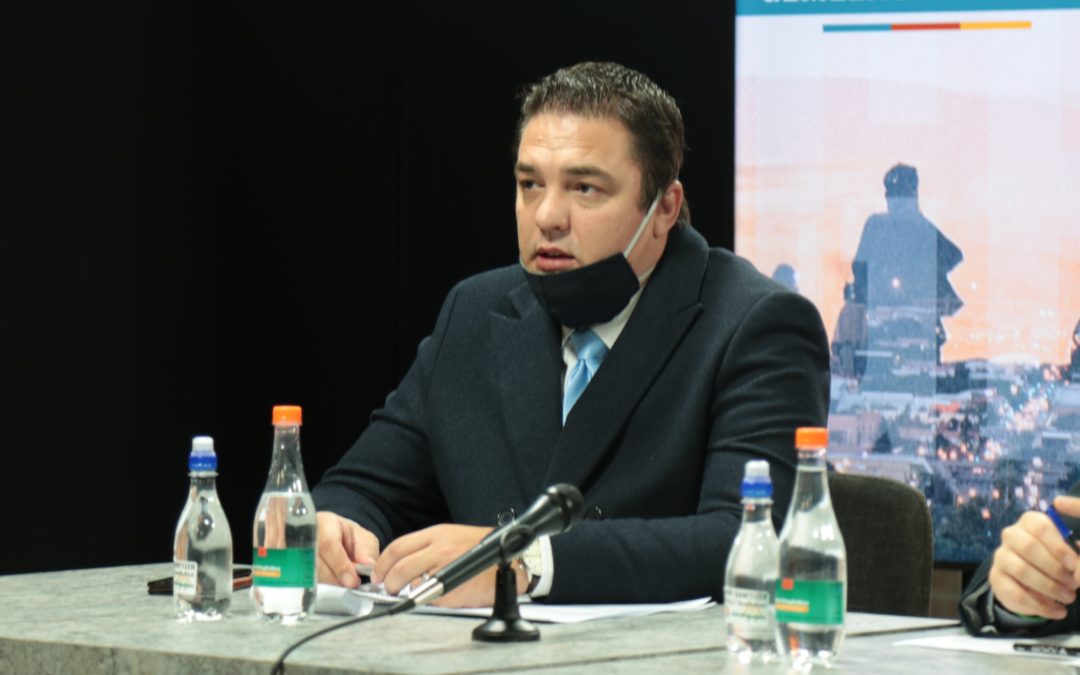By Dr. Eugene Brink
In a recent letter to the nation, President Cyril Ramaphosa starts off by succinctly outlining the worrisome state of the South African economy. Then he launches headlong into an overoptimistic chimera that is completely detached from reality, interspersed with small doses of concern.
Right at the end, he confidently declares that “we have all the ingredients for an economic recovery”. Let us then all work together to make it happen.
Admitting to none of the horrible missteps taken by government during the last few months – imposing a nonsensical hard lockdown for which there is no proof that it was at all effective in stemming the rising number of COVID-19 cases and deaths – or those made since his reign started back in February 2018, the president focuses on what he does best: emphasising the state’s role in the economic recovery, soft-peddling (or wholly ignoring) the egregious systemic problems in the country and focusing on what needs to be done in future (“will” and “must” being the operative terms). Blatant untruths and lies of omission abound in this letter, but he did have the decency or realism to not make up successes where there are clearly none. He simply and not-so-deftly dodged them.
Just because Ramaphosa wishes for a recovery to happen, doesn’t mean it will happen. In fact, in the current environment all the wrong ingredients are present to prevent a significant recovery. Foremost are Mr Ramaphosa and his party. There is a whole world of difference between intentions and impact, as well as efforts and achieving the desired result. “One of the great mistakes is to judge policies and programmes by their intentions rather than their results,” Milton Friedman said.
“Since the onset of the pandemic in South Africa, our strategy has been to provide whatever support we can, within our constrained resources, to protect businesses and preserve jobs,” Ramaphosa writes. Do you really expect us to believe this, Mr President?
Is this why government held back aid (funded by all taxpayers) to white-owned businesses? Is this why his mandarins bullied and harangued charity organisations? Is this why tenders for personal protective equipment were inflated and irregularly awarded? Is this why the restaurant, manufacturing, mining, and tourism industries have been needlessly decimated? Is this why tobacco is still banned? Is that why Mr Ramaphosa is in thrall to the labour unions? Is that why a national minimum wage was instituted?
Sorry, but businesses – especially small ones that he is so passionate about in his letter – and their employees have been paying the price for government’s unaccountable edicts. He harps on about establishing new businesses when he and his government have been destroying existing businesses and livelihoods! And then he has the gall to say that “we” must work together and not be discouraged or daunted. Easy for him to say when his presidential salary and those of the bloated and inappropriately named civil service are safe.
As Tony Leon recently wrote in the Sunday Times: “Fomite has clearly infected government thinking and actions. It seems to be enthusiastically and (here at least) able to transfer the diseases of unemployment and business failure to as many sectors as possible.”
Alongside small businesses, the president highlights the agricultural sector as a potential source of growth. Although this sector has performed admirably under tough conditions, it is shrouded in a miasma of toxic policies and potentially bad ones, not least of which is expropriation without compensation. Farmers have survived despite government and the weather’s best efforts to undermine them.
He also laments inadequate execution as a challenge to kickstarting the economic recovery. The best skills in all sectors of society need to be utilised to support a common programme. Sounds nice enough, but yet again the reality is much more chequered. Cadre deployment has shorn the oversized state of most of its expertise and is a parasitic creature that crowds out private investment. The private sector and those with applicable skills are wary of getting involved in any common endeavour and, at the same time, are not really permitted to make a difference, let alone take the lead.
As The Economist recently wrote in a trenchant piece on rising povrty in South Africa due to the mismanagement of the COVID-19 crisis: “There is seemingly no problem for which the ANC does not see the state as the solution.” The “new economy” Ramaphosa so loftily proposes is not a Singapore-style system driven by technology and excellent education, but another discredited Marxist shibboleth composed of a State-run pharmaceutical company and bank.
South Africa’s people need to realise that if this country and its component parts are to flourish, (often localised) organised, self-initiated and issue-specific efforts are the best way. Professor Koos Malan of the University of Pretoria writes in his latest book, There is no supreme constitution: A critique of statist-individualist constitutionalism, that formations of civil society are positioned to fulfil important constitutional responsibilities and constitute a centre of power for the benefit of their membership and whoever might be benefitting from their activities. Most importantly, they act as a check and balance on all other centres of power – on government in particular.
The infighting and avarice of the ANC and the spectacular unravelling of the state have left us no choice. We’ve been abandoned in every sense – if not rhetorically, then certainly in practice. Ramaphosa talks about getting the fundamentals right. He mentions reliable energy and efficient transport. A mixture of craven inaction, pernicious ideology, zero accountability and criminal behaviour has made this impossible and to no surprise, the fundamentals have been destroyed and not rebuilt. Even with a rather handsome election victory and the state’s prowess at his disposal, his wishes for improvement have produced only regression.
Dr Brink is Strategic Advisor for Community Affairs at AfriForum


